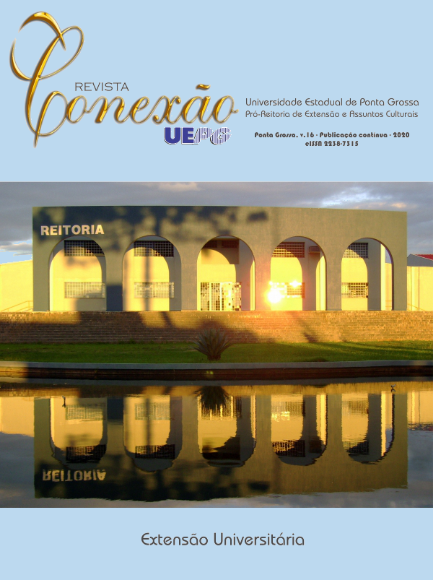CURSINHO POPULAR E COMPETÊNCIAS MATEMÁTICAS: IMPACTO NO ACESSO AO ENSINO SUPERIOR
DOI:
https://doi.org/10.5212/Rev.Conexao.v.16.15621.042Resumo
No âmbito da extensão universitária, os cursinhos populares têm a missão de promover o ingresso ao ensino superior público, combatendo desigualdades associadas a esse processo. Nesse sentido, para se conquistar uma vaga na universidade pública, é fundamental conhecer as habilidades matemáticas avaliadas pelo ENEM. Assim, o Curso Preparatório para o ENEM, estudado neste trabalho, visa fornecer às camadas populares mais oportunidades de acesso à universidade, contribuindo para seu desenvolvimento intelectual e social. O objetivo deste estudo é discutir o nível de conhecimento matemático dos cursistas e a importância atribuída a ele para se ingressar no ensino superior. A pesquisa é do tipo participante, sendo um estudo de caso realizado por questionário. Conclui-se, por fim, que a participação no Curso Preparatório impacta positivamente a relação dos estudantes com a Matemática, aumentando sua nota média. Além disso, observa-se o papel essencial do estudo da Matemática, independentemente do curso universitário escolhido pelos alunos.
Downloads
Downloads
Publicado
Edição
Seção
Licença
a) Os autores mantêm os direitos autorais e concedem à revista o direito de primeira publicação, com o trabalho simultaneamente licenciado sob a Creative Commons Attribution License que permite o compartilhamento do trabalho com reconhecimento da sua autoria e publicação inicial nesta revista.
b) Ao submeter um artigo à Revista Conexão UEPG e tê-lo aprovado os autores concordam em ceder, sem remuneração, os seguintes direitos à Revista: os direitos de primeira publicação e a permissão para que a Revista redistribua esse artigo e seus metadados aos serviços de indexação e referência que seus editores julguem apropriados.
c) Os leitores são livres para transferir, imprimir e utilizar os artigos publicados na Revista, desde que haja sempre menção explícita ao(s) autor (es) e à Revista Conexão UEPG e que não haja qualquer alteração no trabalho original. Qualquer outro uso dos textos precisa ser aprovado pelo(s) autor (es) e pela Revista.

Este obra está licenciado com uma Licença Creative Commons Atribuição 4.0 Internacional.





